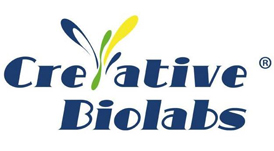New York, USA – June 11, 2024 – Recent advancements in in vitro studies for neuroscience have been largely driven by model technology. “For studies on neurological disease mechanisms and new drug development, our in vitro model platform has offered customized solutions for many scientific teams,” said a neuroscience expert from Creative Biolabs.

This cutting-edge platform combines advanced cell culture techniques, gene editing technology, and three-dimensional (3D) tissue engineering, providing researchers with an efficient, reliable, and reproducible research tool. By simulating human brain development and disease processes, the platform enables precise manipulations and analyses in an in vitro setting.
“Our solutions cover various cell lines and induced pluripotent stem cell (iPSC) models, as well as complex whole-brain organoids,” the expert added. “These models realistically reproduce the cellular diversity and tissue structure of the human brain.”
To overcome the limitations of traditional 2D cell cultures and animal models, 3D brain organoids can form more heterogeneous structures in vitro, developing into different progenitor cell regions and exhibiting characteristics of various brain areas.
Creative Biolabs’ whole-brain organoid development uses iPSC-derived neuron differentiation methods to recreate the brain’s spatial structure and functional characteristics. This is particularly useful for studying pathophysiological processes and the impact of genetic manipulation on these processes.
“3D models are often the best choice for in vitro studies of Alzheimer’s disease. Our model development can target key pathological features, such as ß-amyloid plaque accumulation and neurofibrillary tangles, and design strategies based on the specific experimental needs of researchers.”
Creative Biolabs’ Alzheimer’s disease models include genetically engineered animal models and the following in vitro models:
* Cell Line Models: Creative Biolabs uses transgenic or gene editing techniques to create cell lines expressing Alzheimer’s disease-related mutant genes, such as Tau.
* iPSC Models: Using iPSC technology to generate pluripotent stem cells from the somatic cells (e.g., skin cells) of Alzheimer’s disease patients and differentiate them into neurons or neural precursor cells.
* 3D Brain Organoid Models: Creating complex human brain 3D organoid models derived from patient-specific iPSCs to simulate the intricate structure and functional characteristics of the brain.
Reflecting on the expertise gained from model development, the expert noted, “Over the past few years, Creative Biolabs has established proficient processes in the development of in vitro models for neurological diseases. Our customized solutions have contributed to the success of numerous experimental projects.”
For more information on in vitro research on neurological diseases, please visit https://neuros.creative-biolabs.com.
Company Overview
Creative Biolabs is committed to being a reliable partner in the field of neuroscience research. Whether for basic research or drug development, our services help researchers achieve high-quality, reproducible experimental results, propelling their research projects toward success.
Media Contact
Company Name: Creative Biolabs
Contact Person: Candy Swift
Email: Send Email
Phone: 1-631-830-6441
Country: United States
Website: https://neuros.creative-biolabs.com
